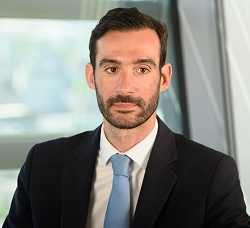Background
Teva is an Israeli multinational pharmaceutical company operating from several subsidiaries in the European Economic Area (EEA).
The company is well known for its blockbuster medicine, Copaxone, which is used for the treatment of multiple sclerosis. The medicine contains an active pharmaceutical ingredient called glatiramer acetate, over which Teva held a basic patent until 2015. Teva has held a dominant position in the markets for glatiramer acetate in the EEA.
In 2019, the European Commission carried out dawn raids at a number of Teva subsidiaries in the EEA, which was followed by the Commission opening formal competition law investigations in 2021 to assess whether Teva had breached Article 102 of the Treaty on the Functioning of the European Union (TFEU).
Infringements
On 31 October 2024, the Commission's investigation found that, in breach of Article 102 TFEU, Teva abused its dominant position in the markets for glatiramer acetate in Belgium, the Czech Republic, Germany, Italy, the Netherlands, Poland and Spain. In particular, Teva had delayed or blocked the market entry of rivals to Copaxone by engaging in the following tactics:
- Misused patent procedures: Teva misused the European Patent Office’s (EPO) rules on divisional patents. By way of brief background, divisional patents come from an earlier ‘parent’ patent application and have similar content to the parent application, but they focus on different aspects of the invention. In the present case, when Teva’s patent for glatiramer acetate was about to expire, Teva filed several divisional patent applications in a staggered way, which were then challenged by rivals. Pending review by the EPO, Teva sought interim injunctions against opponents. When the patents seemed likely to be revoked, Teva strategically withdrew them to avoid formal invalidity rulings, but by this strategy Teva artificially prolonged legal uncertainty over its patents for glatiramer acetate and thereby extended its basic patent protection. The Commission considered this a systematic abuse of process rather than a legitimate exercising of Teva's rights of defence.
- Systematic disparagement campaign: Teva spread misleading information about the safety, efficacy and therapeutic equivalence with Copaxone of the only rival glatiramer acetate medicine (manufactured by Synthon), despite the relevant health authorities having approved the competing medicine. The Commission found that the objective of implementing this systematic disparagement campaign was to slow down or block the entry of rivals.
The Commission ruled that Teva’s abusive practices were complementary and orchestrated together and in combination amounted to a single and continuous infringement of Article 102 TFEU, and that the abusive practices had lasted between 4 to 9 years (depending on the relevant Member State).
In response to the ruling, Teva has stated the following: “Teva disagrees with the Commission’s legal theories which are legally untested and, Teva believes, not supported by the facts. The company will vigorously defend its position on appeal and is well prepared financially to mount a defence.”
Comment
Whilst this is the second Commission decision about disparagement campaigns[1], it is the first time that the Commission has imposed a fine in relation to these types of practices. The ruling highlights that the Commission will not shy away from punishing businesses employing novel strategies to avoid engaging in fair competition, thus forming a clear view in this case that cynically manipulating legal processes in order to stifle competition is within the ambit of ‘abuse’ by companies in a dominant position. Provided that a business holds a dominant market position, there are a broad range of practices that the Commission may consider abusive – showing that the substance of their actions, rather than their form, is what truly matters.
The Commission emphasised its reliance on documents obtained during dawn raids from Teva’s in-house lawyers, who were involved in crafting the abusive strategy to protect Copaxone. This underscores the importance of purpose and intent in the Commission’s assessment.
Businesses with significant market shares should understand the rules around legal processes to ensure that they are not misused, and should exercise caution around any information they release on competitor products.
This case will cause many businesses to reflect on strategies that they might deploy in order to preserve and lengthen advantage, particularly when intellectual property rights are due to expire. What this case is saying is just because a legal procedure is capable of being undertaken does not provide an automatic exemption, as some might have thought, from such activity being considered abusive within the meaning of Article 102 TFEU.
[1] In July 2024, the Commission accepted commitments by Vifor addressing the Commission's preliminary concerns that the pharmaceutical company could have engaged in a potentially anticompetitive disparagement campaign.
Chambers and Partners UK Guide 2025 ranks DWF Band 1 for Competition Law in the Regions with clients saying that the team's lawyers are "streets ahead of the competition, in terms of both quality and value" and "second to none". If you need Competition Law advice, please get in touch.















